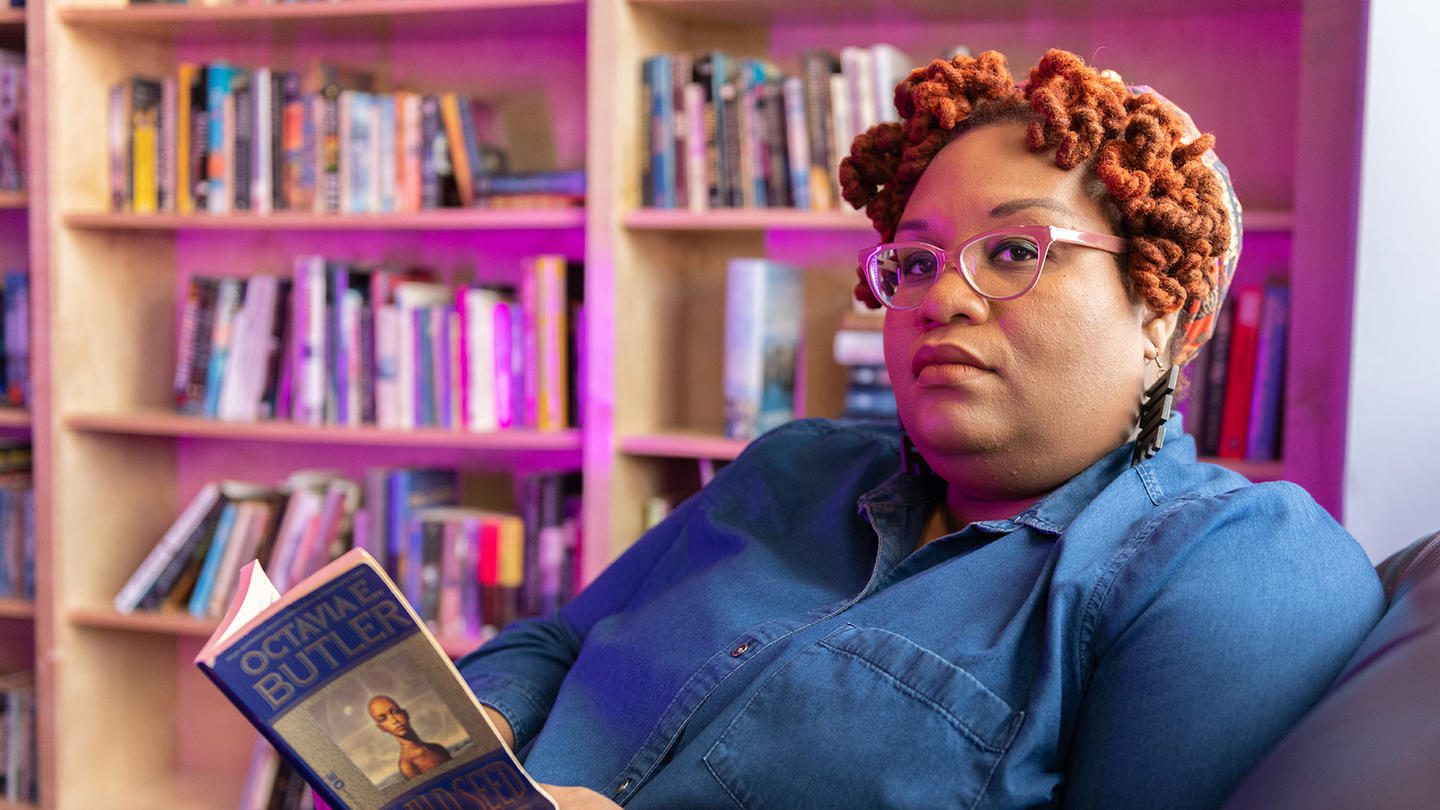
The Spirit of ’76: Slavery, Empire, and the Anthropocene in Octavia E. Butler’s ‘Kindred’
Susana M. Morris, Georgia Institute of Technology; Anschutz Distinguished Fellow in American Studies;
October 6, 2022 · 4:30 pm—6:00 pm · 010 East Pyne
Effron Center for the Study of America; Department of English

The Effron Center for the Study of America presents the Fall 2022 Anschutz Lecture: Susana Morris
In 1976, the United States was celebrating the Bicentennial, or the 200th anniversary of the Declaration of Independence. Still reeling from Vietnam, Watergate, and the previous decade’s culture wars, the still young nation threw itself into the culmination of a series self-congratulatory festivities to combat the cheerless national mood. Set in both 1976 and antebellum America, Butler’s Kindred is part of a cadre of the 1970s neo-slave narratives that reckon with the nation’s legacy in ways that the Bicentennial’s commemorative stamps, coins, and patriotic parades could never do. Kindred tells the ugly, complicated, unvarnished history of America, demythologizing the past and giving readers a clearer view of the present. In this talk, I will discuss the role of the Bicentennial in Butler’s work, especially as it relates to the legacy of slavery and the concurrent rise of the American empire and the Anthropocene.
Susana M. Morris is associate professor of literature, media, and communication at the Georgia Institute of Technology. She is the author of Close Kin and Distant Relatives: The Paradox of Respectability in Black Women’s Literature (UVA 2014), co-editor, with Brittney C. Cooper and Robin M. Boylorn, of The Crunk Feminist Collection (Feminist Press 2017), and co-author, with Brittney C. Cooper and Chanel Craft Tanner, of the young adult handbook, Feminist AF: The Guide to Crushing Girlhood (Norton 2021). She is the co-founder of The Crunk Feminist Collective and has written for Gawker, Long Reads, Cosmopolitan.com and Ebony.com, and has also been featured on NPR, the BBC, Essence magazine, and The New York Times. Her research and teaching interests explore Black women’s relationships to Afrofuturism, the Anthropocene, and feminism. She is currently at work on a cultural biography of Octavia Butler, Positive Obsession: The Life and Times of Octavia E. Butler.















